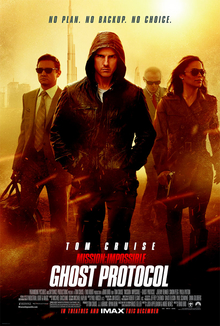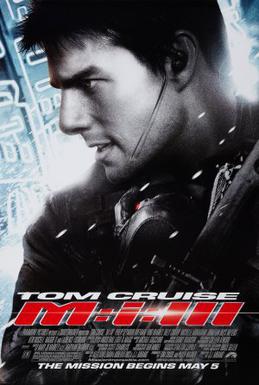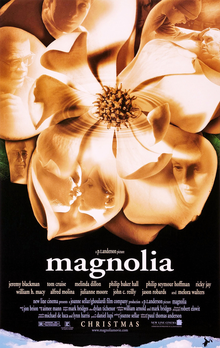I gave up on the
Mission: Impossible series after the first two installments (Brian De Palma, 1996; John Woo, 2000) partly because they featured the world's most annoying major movie star, but also because they lacked some of the things that made the old TV series so entertaining. One of those things is intelligence, by which I mean not just spycraft but also the application of thought, rather than muscle and firepower, to problem-solving. Another is that the TV show was an ensemble affair, with Peter Graves, Martin Landau, Barbara Bain, Greg Morris, and Peter Lupus (and various successors) working together to thwart the bad guys. The films, on the other hand, were very much about Ethan Hunt (Tom Cruise) as a James Bond-style one-man band -- no surprise, since Cruise is the producer of the
M:I movies. The other members of the Impossible Missions Force were expendable, with the exception of Ving Rhames, who has been the only other constant in the film series. I was persuaded to take another look at the series after I found myself enjoying
Edge of Tomorrow (Doug Liman, 2014), which made me think that Cruise still had some valid claim to his stardom. And since J.J. Abrams has become maybe the world's most successful producer-writer-director, it also behooved me to check out the first film he directed. Abrams made a laudable effort to restore some of the ensemble work of the TV series, bringing on a team including Rhames, Billy Crudup, Jonathan Rhys Meyers, Maggie Q, Simon Pegg, and Laurence Fishburne to flesh out the IMF. It doesn't quite work because Cruise still hogs the film, but there are some good bits from all of the supporting actors, and a nice contribution to IMF lore: the souped-up 3-D printer that churns out one of the famous masks the agents wind up wearing. This time it's a mask of the film's villain, Owen Davian (Philip Seymour Hoffman), and one of the best scenes in the film involves Hoffman playing Cruise playing Hoffman. But there are simply too many climaxes to the movie. I wish some of them had been cut to expand on the film's most enjoyable section, in which the team infiltrates the Vatican to kidnap Davian. I would have liked to see the planning -- the intelligence, if you will -- that went into the scheme. But I liked
M:I III more than I expected. I'm told that
Mission: Impossible -- Ghost Protocol (Brad Bird, 2011) and
Mission: Impossible -- Rogue Nation (Christopher McQuarrie, 2015) are better, so maybe I'll eventually get around to checking them out.





